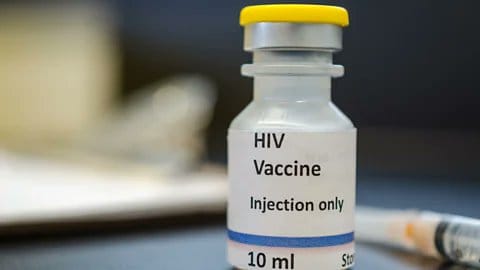
Kenya has been selected as one of the 9 early adopter countries for the rollout of Lenacapavir. Photo: Courtesy.
Kenya has been selected among first nine early adopter countries set to roll out Lenacapavir (LEN) an injectable vaccine for HIV preventive medication implementation by the World Health Organisation(WHO).
According to a statement by National AIDS and STI Control Program (NASCOP), the injectable drug will be available by January 2026.
“Kenya has been selected as one of the 9 early adopter countries for the rollout of Lenacapavir through NASCOP in collaboration with various partners, is actively working to ensure the availability of this innovative product for Kenyans by January 2026,” NASCOP stated.
It is guideline, WHO directed that drug injected twice-a-year injectable for pre-exposure prophylaxis (PrEP), for HIV prevention, in a historical move in field of medicine in response to the HIV pandemic in the world.
According to a report by Citizen Digital, LEN, the first twice-annual injectable PrEP product, is a highly effective, long-acting alternative to daily oral pills and other shorter-acting options.
According to WHO, the drug will cushion people at the risk of HIV, with a specification to patients who face difficult in accessing health care services and stigmatization from the society.
“While an HIV vaccine remains elusive, Lenacapavir is the next best thing: a long-acting antiretroviral shown in trials to prevent almost all HIV infections among those at risk,” WHO Director-General Dr Tedros Adhanom Ghebreyesus stated.
NASCOP said that the move was a milestone in the country’s health sector on the road map to achieve Sustainable Development Goal (SDG) 3.3, which aims to end the Aids pandemic as a public health threat by 20230.
This involves reducing new HIV infections and AIDS-related deaths by 90% from 2010 levels. While significant progress has been made, challenges remain, particularly in addressing inequalities and ensuring access to testing and treatment, especially for key populations.
“This strategic initiative marks a significant step toward our goal of ending HIV/AIDS by 2030, making this vision an increasingly attainable target,” NASCOP stated.
By end of December 2024, data showed that approximately 40.8 million people were living with HIV worldwide, with about 65% of these cases in the WHO African Region., while in Kenya the figures stood at 1.3 million reported infections.




